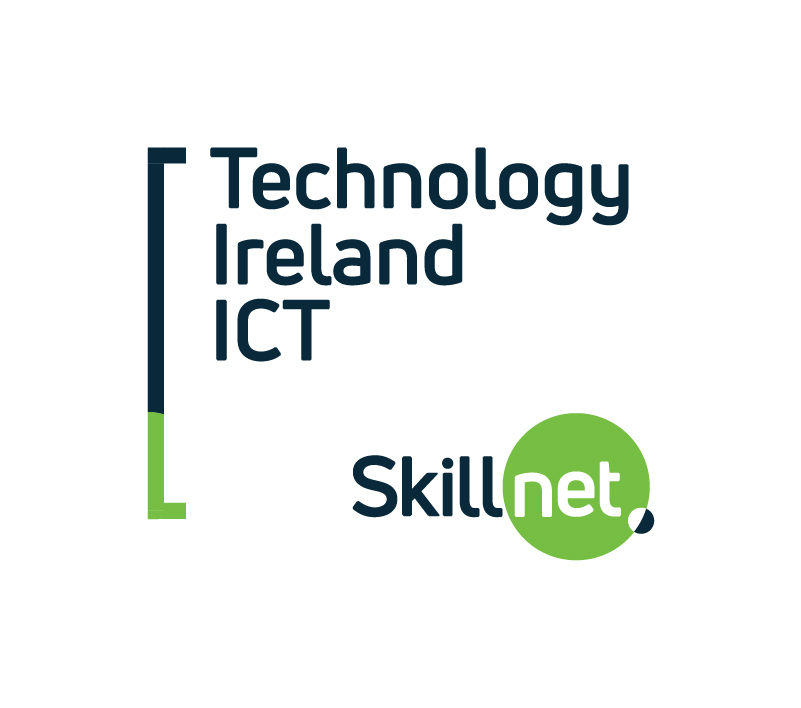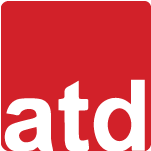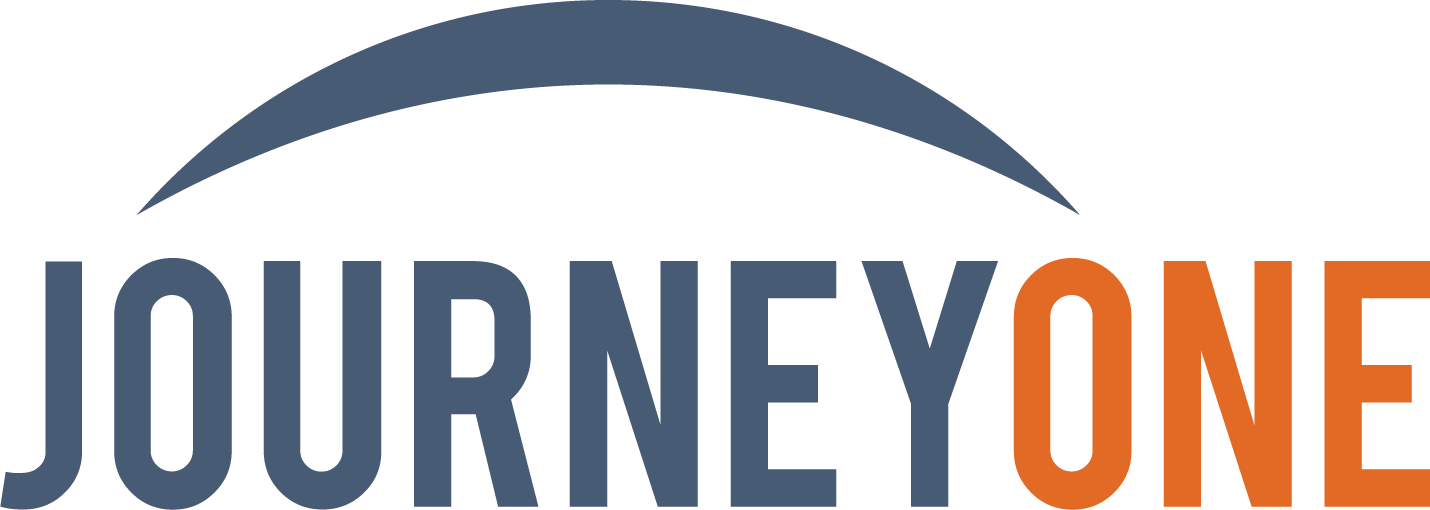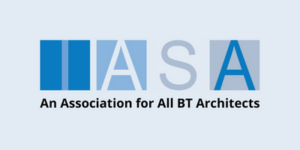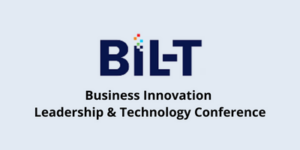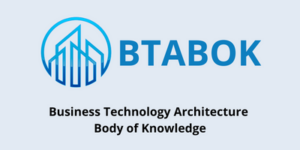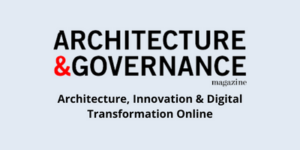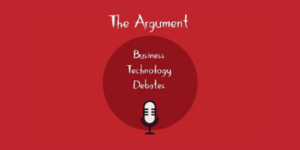Women In Architecture (WIA) Takes Over BIL-T
THE AGENDA
24 hours of insightful presentations in a virtual meeting space.

Panel Discussion
Paul Preiss
CEO & Founder, IASA Global
Panel Discussion


Putting a Business Architecture Knowledge Base to Work: Use Cases beyond Business Architecture
Juliane Berger
Head of Business Architecture at Allianz Commercial
Amanda Bristow
Principal Business Architect
In this session, we will discuss using the BTABoK structured canvas approach to evaluate technology for its impact on our business and technology landscape.
Tools under discussion
– Using sensing and future casting in understanding emerging technology
– Using business cases and OKRs to evaluate investment prioritization
– Using Decision Records to understand product and pattern application in solution design




Ardoq hosts: Empowering Excellence Women in Architecture
Sarah Cornell, Managing Director, Technology Consulting Protiviti NYC
Miranda Mason, Managing Director, Technology Strategy and Enterprise Architecture Global Lead Slalom
Dina O’Donnell, National Leader, Enterprise Architecture KPMG Canada
Laurie Kelly, VP of Marketing, Ardor
Join us for an inspiring and informative conversation, “Empowering Excellence: Women in Architecture,” where Laurie Kelly, Vice President of Marketing at Ardoq, will lead a dynamic panel discussion featuring three remarkable women who have made significant strides in the field of architecture.
Our panelists represent a diverse range of backgrounds, experiences, and expertise within architecture. They will discuss how diversity enhances innovation and creativity in architectural practice. This event is a celebration of the contributions of women in architecture and an exploration of the challenges women face and overcome.

Traceable Measurement Strategy
Claire Wybrow
Enterprise Business Architect, PMP, CBPP, BRMP
Across all industries, there is increased pressure to demonstrate the value delivered from technology investments. As the need to trace and report on “Strategy to Execution” increases, enterprises are focusing on OKRs and requiring technology to show the value they deliver and their alignment with the business strategy.
This session discusses both the simplicity and complexity of traceable measurement from enterprise strategy to product KPIs and how to take a first step towards this in your organization.

Why women in architecture matters and how we make it count
Lisa Woodall
Global Head of Discovery and Design of WPPIT.
The session will pose a hypothesis that gender doesn’t matter in architecture, what does matter is competency, skills and attitude and none of these things depend on gender… the session will go on to explore how we make our competencies, skills and attitude count with belief and conviction on what we do mattering for the organisations and enterprises we spend our time working in.. too often we revert to stereotypes and we need to not fuel them but dispel them and show the difference women can make.
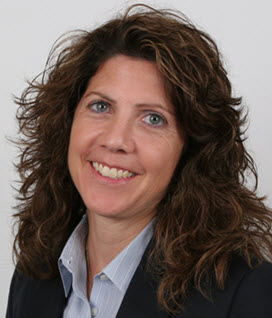
Business Architecture is a must have to build out composable digital strategies.
Lisa A. Pratico
VP Global Enterprise Architect / Previously at HP, Inc.
This presentation covers the push by digital leaders to promote business composability. Due to the pressure to build business composability at speed there is now a tighter alignment and value of having collaboration across lines of business and Enterprise Architects including Business and Technology Architects. I will dive into how both BA and EA ensure proper business capabilities are designed and implemented in a digital era leveraging architectural artifacts that can identify “services” across an entire technology stack to ensure business composability, agilitly and velocity with reuse.

Enterprise Architecture as an Innovation Accelerator
Pamela Wise-Martinez,
Senior Executive, Head of Whirlpool’s Global Enterprise Architecture practice
The evolution of EA continues, beyond enforcement of standards, portfolio strategist, internal consultancy, into the avengers of innovation and accelerator for business. Consider the role of EA the role of the Chief Architect, responsibilities across all pillars of strategy, demand, and innovation. The enterprise view point is typically looking outwards with knowledge of current state, and aligning the ambitions of the business. Exploring research, development, methods, and experiences with leaders in tech, early adopter is the EA continuous improvement lifecycle, e.g., tech and business entanglements of data, customers and economic drivers. This talk will explore and discuss the actions and results.




Architecting Equity: The Pivotal Role of Allies to Empower Women in Architecture
Whynde Kuehn
Managing Director, S2E Transformation
Darryl Carr
Experienced Architect and Builder of Professional Communities
Grant Ecker
Founder of CAF
Cary Brown
Executive Director, Enterprise ArchitectureExecutive Director, Enterprise Architecture Charles River Laboratories
E.G Nadhan
Red Hat, Global Chief Architect Leader, Field CTO Organization
Driving the expansion of women in architecture roles is a movement that takes all of us, and both women and men play a critical role as allies, advocates, mentors, and change agents. In this panel, we will explore the power of diversity in architecture along with what it means to be an ally for women in architecture from leaders who walk the talk. Finally, we will discuss actionable steps that individuals and organizations can take to build a more diverse and inclusive architecture profession.

Modernization ways of thinking and execution
Gurpreet Bal
Chief Enterprise Architect, Head of Enterprise Architecture and Data Technology
How to close your data centers, modernize your stack in a phased manner.

Architecture as Innovation: Gaining competitive advantage through improved strategy translation
Amy Browning
Strategic Business Architect | MPS Ent Arch & Bus Transformation | MBA Finance
In this session, the basic concept of a strategic control system will be explained to demonstrate why the utopian state for rich strategic insights is difficult to achieve. There also will be discussion on what the research participants disclosed as the various ways strategic divergence occurred in their organizations. Some humorous, some shocking. Attendees will take-away practical business architecture techniques—as supported by the subject research—to reduce strategy divergence in their environment.

Chief Architect’s secret sauce | Women Superpowers
Geeta Pyne
Chief Architect, TIAA
A Panel discussion with Women Chief Architects from leading industries around the world, discussing their super powers, unpacking what does it mean to be a Chief Architect, any their individual super powers have helped to provide the secret sauce of a successful CA!

The Architecture Orchestration that powers change & transformation
Jess Tayel
Global Transformation thought leader and founder of People of Transformation Community
This session is about the connectedness and structure of the various architecture disciplines (technology, business, human-centred design..) and how leveraging those architectures in the right way and the right sequence would enable organizations to design and deliver change and transformation programs faster and better.

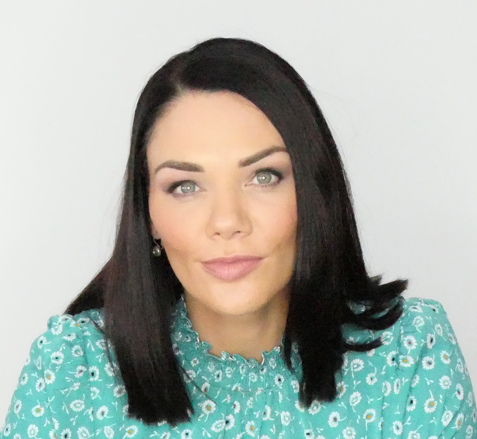
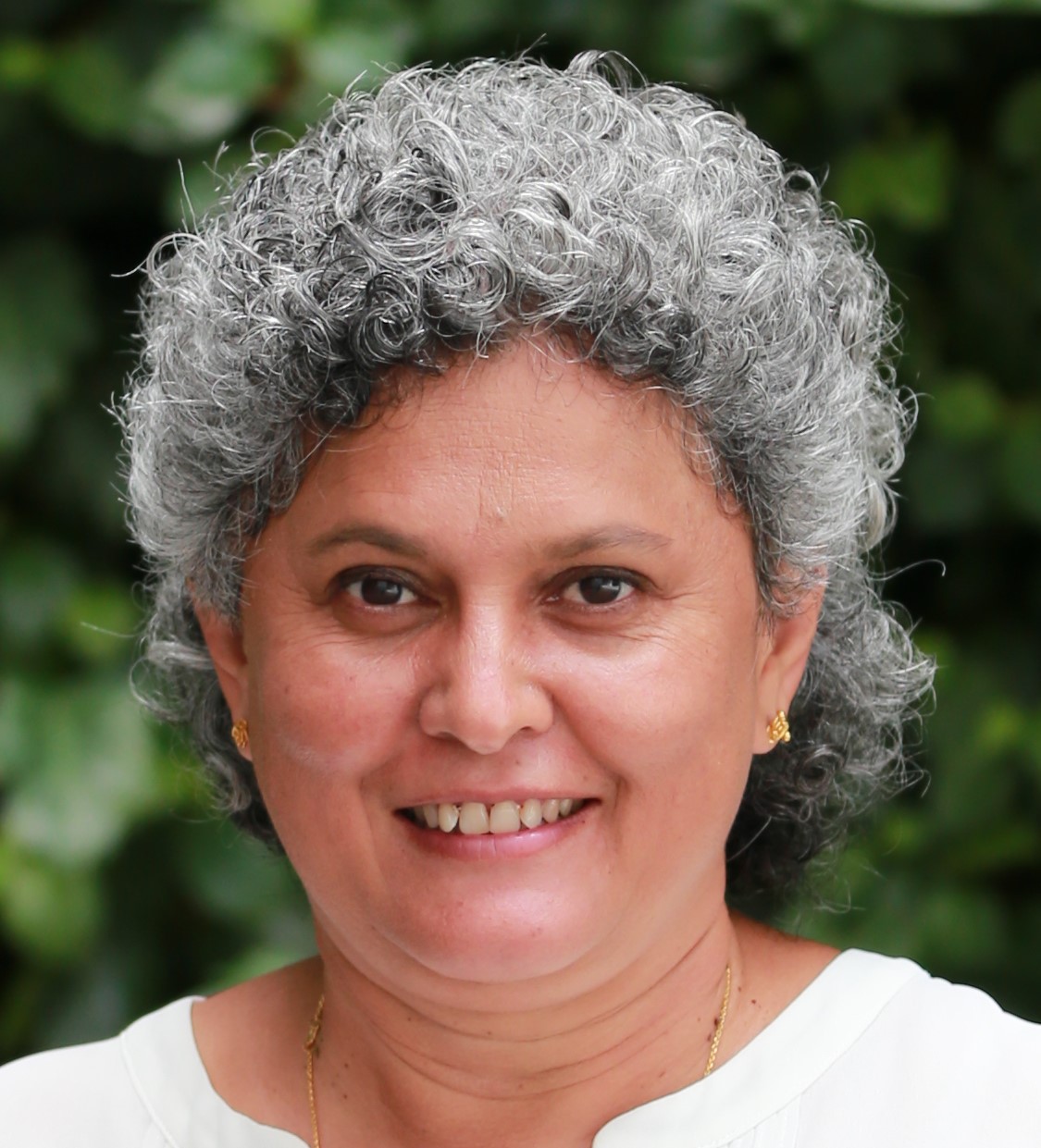
Panel Discussion
Darryl Carr
Experienced Architect and Builder of Professional Communities
Christine Stephenson
Co Chair Women in Architecture (Australia)
Heidi Alison
Suncorp Group
Executive Manager – Digital Insurer (Customer Migration)
Panel discussion

Human-Centered Transformation: Bridging Design, Business, and Tech for Tomorrow’s Organisation
Fran Mether,
Arteri Partner, Strategic Design Advisor
In our swiftly changing digital landscape, the success of organisational transformation lies at the intersection of design, business acumen, and technological advancement. But at the core of these elements is the human experience — the users, the creators, the customers and the investors.
Fran Mether from Arteri will provide a deep dive into “Human-Centered Transformation”, a talk that illuminates the power of integrating human-centered design principles, robust business and IT architecture, and forward-thinking strategies. Together, these components can steer an organisation’s transformation journey, ensuring it remains adaptive, relevant, and above all, people-centric.

First Comes Courage
Sonia McDonald
CEO of LeadershipHQ, Courage Crusader, Award Winning Author & Global Keynote Speaker
Many leaders often wish they had more courage. This keynote is impactful and highly motivating based on Sonia’s book and explores the Courage Compass around Self, Kindness, Impact, Purpose and Resilience. Sonia will take your audience through the virtues and keys to courageous leadership. Are you ready to go on a journey of discovering the 5 rules of great courage and how they can change your life?

An Enterprise Architecture for a SmartCity – Cambodian government case stufy
Christine Stephenson
The Enterprise Architect’s coach
Presenting a model for a Smart City Enterprise Architecture built for a local Cambodian Government. Showcasing the components of this Smart City design built to deliver a Smart and interoperable city.

Key transformation steps for data driven enterprise
Garima Singh Chief Architect,
Head of enterprise architecture , Sandvik Group
– “WHY” do we need data transformation?
– Different stages in data driven transformation
– Challenges
– How to Lead an effective data transformation
– Speed matters….how to get the ultimate value out of data/AI efforts.

Ethics of AI – What can we learn from Asimov’s Three Laws of Robotics?
Patty O’Callaghan
Tech Lead Charles River Laboratories | Google Developer Expert in Machine Learning
Technology is embedded in our lives, and Artificial Intelligence will have an ever greater impact on the development of humanity.
As creators of technology, are we prepared for the responsibility that this entails, as we try to create machines that emulate human reasoning and behaviour?
Let’s find out what Isaac Asimov, one of the greatest science fiction writers, had to said about it when he wrote the Three Laws of Robotics, considered by many to be the historical starting point of the Ethics of Artificial Intelligence.

Operating Model and Capability Deployment: Responding to evolving business models
Harry Blackburn
Enterprise Business Architecture
Target Operating Models are often seen as one-off consultancy led presentations that, whilst providing visibility and a view of the future, do not offer a way to be responsive to changing needs. By combining two methods, it is possible to create a view that provides a way to assess progress towards outcomes, manage customer experience and foster agility to respond to internally, or externally driven changes.
The approach involves combining two methods:
• Defining the Operating Model (MIT CISR – Jeanne Ross)
• Capability Deployment

Small Changes That Could Help EA Diversify and Secure its Future
Emma Askew
Managing Architect at Mosaic Island
Enterprise Architecture in the UK is “less diverse than the House of Lords.” Similar sentiment was expressed by Martha Lane Fox regarding UK IT professionals based on ONS and WISE statistics 2021. The truth is we don’t know the split for UK TOGAF-registered EAs as the Open Group doesn’t capture demographics, and no plans to do so. From US surveys in 2020, women make up 13% of the EA population.
I am often asked by clients and internal teams how to improve diversity in Technology and specifically in Architecture. As EAs we should also consider the why. In this session I aim to do both and demonstrate how we can strengthen and deepen EA offerings in our own practices through small changes.
Why? Aside from the obvious pursuit of equity, EA may be in danger of fishing from a ‘dwindling pool’. Where traditional development routes into EA are rarer with modern technology stacks and citizen technology where an individual may wear many hats already, the favoured T-shape EA is harder to source.
OUR SPONSORS

About MEGA International
MEGA is a global software company and recognized market leader. MEGA has had demonstrated success implementing “next generation” enterprise architecture solutions and use cases at over 2000 companies and has 340,000 users worldwide. Building upon the functionality of enterprise architecture, MEGA has enriched its solutions over the last few years by adding risk management, data governance, and data privacy use cases. Having all these solutions under one platform enables companies to connect these perspectives under one single source of truth. With this broader, connected view, companies get a better understanding of how their business works, uses technology, governs data, which ultimately helps the company realize long-term transformation success. Get up and running quickly with open APIs, instant out-of-the-box reports, and customizable dashboards to share insights across your organization to make smarter decisions. – www.mega.com
About Ardoq
Ardoq is a SaaS company reinventing how companies drive continuous change. Enterprise Architecture tool enables IT and business managers to understand the impact of what they want to do and the impact of their decisions for today’s digital enterprise. The company’s dynamic, data-driven EA platform is designed to plan and execute change initiatives. With Ardoq, IT and business stakeholders can confidently drive change initiatives. Ardoq connects information about an organisation’s people, processes, and technologies to allow you confidently drive change initiatives. With Ardoq, CIOs can confidently deliver digital transformations; IT leaders can make better technology decisions based on timely information; and EAs can serve as change agents, supporting business and IT collaboration for better outcomes! – https://www.ardoq.com/
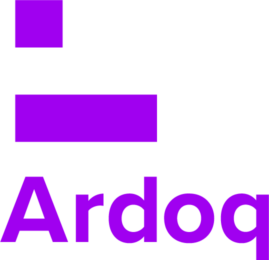
OUR PARTNERS
YOUR HOSTS

Editor of the Enterprise Architecture Professional Journal

An integration architecture thought leader and CITA-Professional

Founder and Managing Director, S2E Transformation Inc.

CEO and Founder,
Iasa Global

Executive in Residence,
DePaul University Innovation Lab






